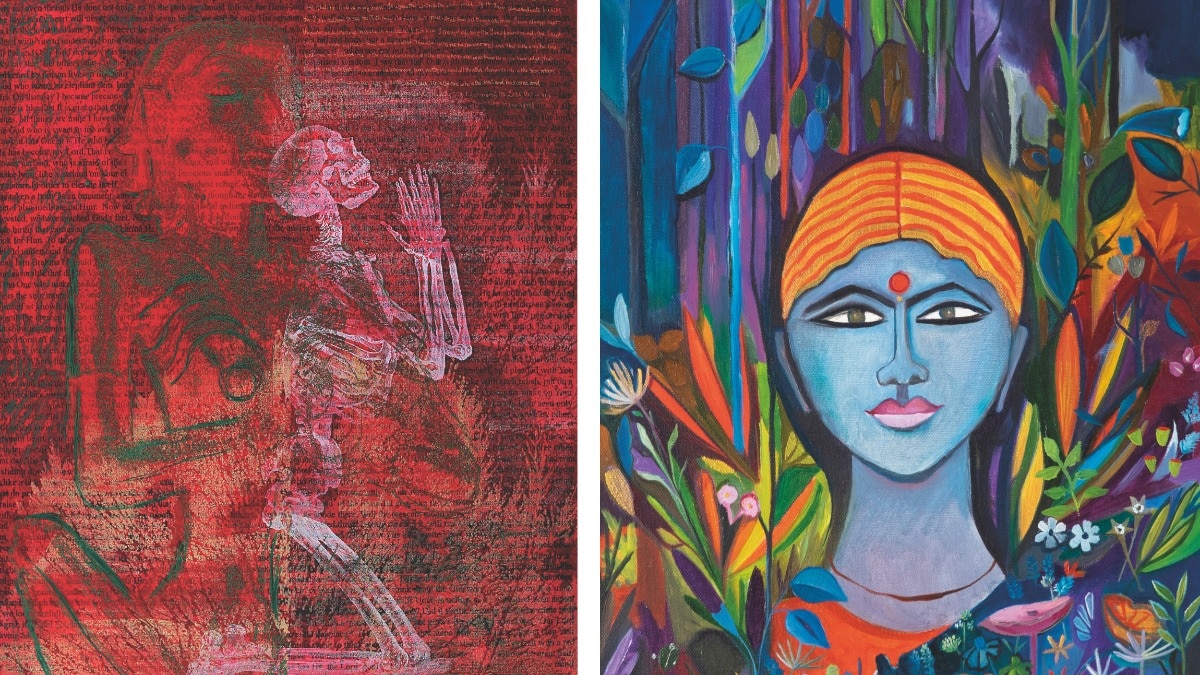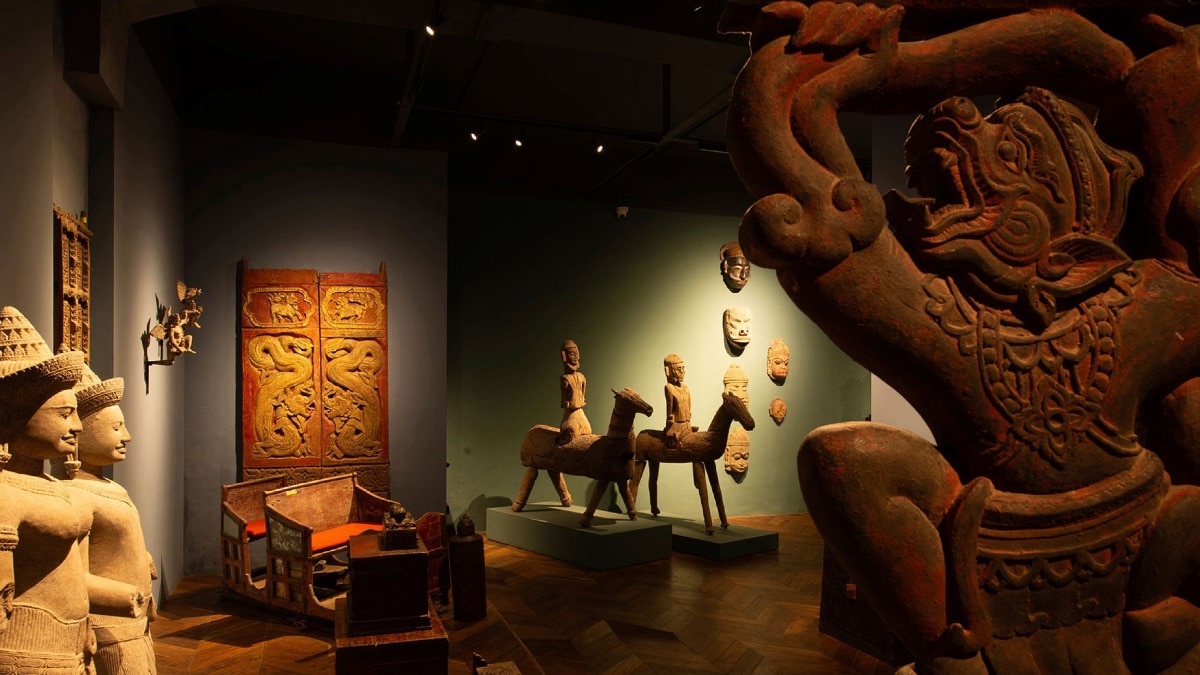
How to turn an idea into a fully-fledged novel
Two authors offer advice on how to build momentum around research and transform ideas into narratives.


There’s a novel inside each of us, or so the adage goes, but sometimes it’s difficult to prise those ideas out from within and put them on paper. If you’ve got a glimmer of a premise swimming around in your mind, but you’re uncertain about how to make it work, then fear not. At the recent Harper's Bazaar literary salon, the Booker-shortlisted author Elif Shafak and the Sunday Times bestselling author Kaliane Bradley explained how some of their books came to fruition—including how they fostered their ideas and used research to forge unique new narratives that have led to their widely praised, best-selling releases.
Here's some of their advice:
Look at the world around you and take inspiration from simplicity
Shafak’s new book, There Are Rivers in the Sky, is an epic tale that spans different countries and cultures over centuries, but its origins are distinctly simple.
“I wondered if I could build an entire novel on a tiny drop of water,” she told Bazaar’s literary editor Erica Wagner. “I’ve always been interested by ecofeminism and the impact of water. As writers, you don’t have to invent the connections between wider issues, you just need to be able to see them.

“I started to look into the climate crisis, and the deeper impacts of the freshwater crisis. It's so easy to forget that we're living in a moment of water scarcity, because we're surrounded by water—there are flash floods, too much rain, sea levels rising. It feels like there's an abundance of water, but the irony is we’re in a period of water scarcity because there's no drinkable water.
“This has massive consequences for everyone, but particularly for women, who tend to be water carriers. When there's no water nearby, the distance that the woman has to walk increases, unfortunately, increasing the possibility for violence, gender violence on the way, on the way back. I wanted this novel to show how connected we all are—and to see that, we need to pay more attention to the journey of a tiny drop.”
Indulge in your interests
Bradley effectively wrote her instant bestseller, The Ministry of Time, in just 12 weeks. She got the idea during lockdown, when she became inexplicably obsessed with British polar exploration.
“I became intensely interested in the Franklin Expedition, which took place in 1845,” she explained. “The Admiralty sent two ships and 129 men to the Arctic to discover this Northwest Passage, which its thought they travelled through, and all of them vanished.”
She became particularly interested in an officer named Graham Gore, but very little was available about him in research or in archives. What drew him to her was his Wikipedia picture, which showed him as distinctly good looking.

“I got very into this part of history, but because it was lockdown, there was no real way for me to research or to access archives,” Bradley continues. “I started writing the premise of my book—what if your favourite polar explorer lived with you in the 21st century?—almost as a joke, just as entertainment. There was an interesting friction between feeling empathy about these men and their demise, but also the vicious overarching projection of colonialism and the British empire.”
Find a supportive community
Bradley’s writing was further bolstered by meeting an online community of fellow enthusiasts also interested in polar exploration.
“They were very generous in sharing their research with me,” she said. “I started writing the very first draft of this almost as a thank you to them.”
Love your research—and its difficulties
Elements of Shafik’s new novel feature the Yazidi people, which she initially found difficult to research due to the lack of written resources and trying to understand the politically fraught nature around them.

“It was a massive challenge,” she explained. “It’s frightening for a writer. Their identity is so reliant on oral culture, how do you even start doing research? There are books, but it doesn't do (their stories) justice. So you have to approach it in a very different way. You have to become a very good listener, and in those conversations I had to do a lot of unlearning of biases and stereotypes, as well as learning to tell that story.
“The research process was insane. It was really intense and interdisciplinary. And I loved it. I loved every moment of it, because if you don't like it, it's not something you would keep doing.”
Don’t be afraid to adopt different styles when you start writing
Shafik found, when she did start writing the book, that her work didn’t consistently stick to one style of narrative. She found the voice changing as she weaved her different threads together.
“Some sections are a bit more Dickensian,” she explained. “Whereas, other sections are more reliant on oral storytelling and dialogue.
“I think there are two different ways when it comes to writing a novel. One is a bit more like engineering, in which a writer wants to control everything. I respect that, but it's not my path. I like the second path, in which you don't quite know what you're doing. You're a little bit drunk as a writer, but you trust your intuition, so you follow what that tells you.”
Understand that the completed product may look different to the initial idea
As Bradley explained, The Ministry of Time was never the novel she set out to write.
“I was trying to write this big Cambodian novel, which would have been about Khmer Rouge, about Pol Pot, about genocide, about the refugees, and then about the Cambodian British diaspora,” she explained. “I felt it was the only book I could write because I was British Cambodian. Of course, it was a very difficult, unpleasant book to write.

“But I did end up taking a character out of it and putting her in The Ministry of Time. I often use jester’s privilege to touch on and highlight painful or difficult issues. The British satirist GK Chesterton said that sometimes humour can get under the door and seriousness is still rattling at the lock. I think humour can be a really useful tool to approach these topics that can feel too painful, too heavy, too complex. Sometimes I think maybe I have written the big British Cambodian novel that I wanted, as this is full of the things that concern me and that intrigue me and interest me.”
Lead image credit: Oliver Holms
Also read: Five new releases that need to be on your reading list this October










